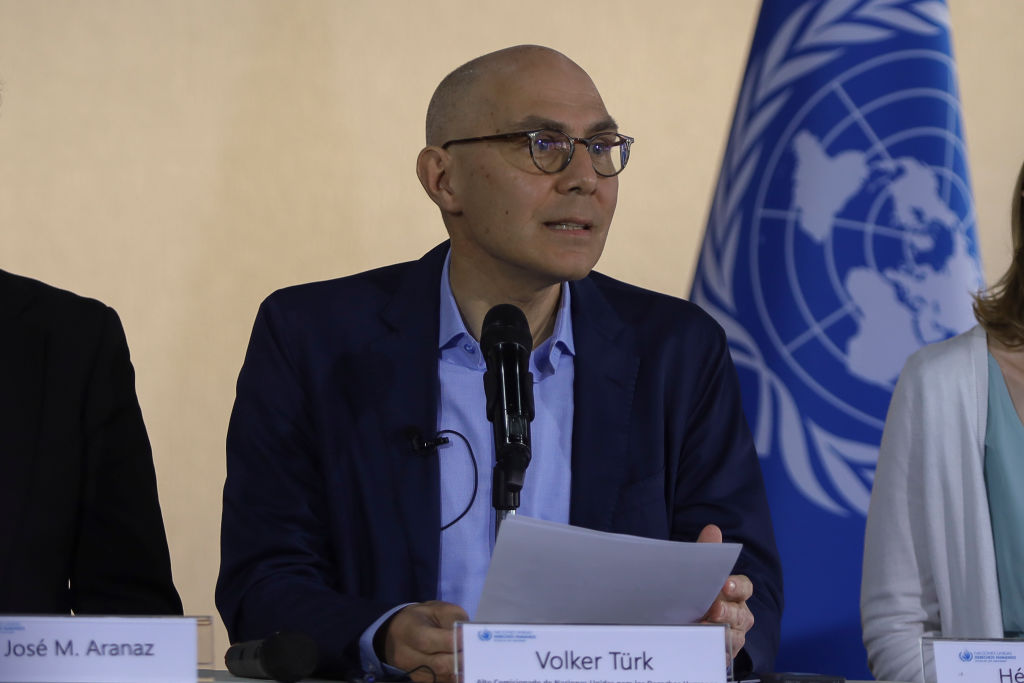United Nations Human Rights Chief, Volker Turk, has called for a victim-centred approach in implementing Nepal’s new transitional justice legislation, aimed at addressing the atrocities committed during the country’s civil war. This legislation, Turk emphasized, is crucial for ensuring accountability and fostering reconciliation.
“Eighteen years since the end of the decade-long conflict, and after several previous attempts to finalize such legislation, victims of human rights violations are now closer to knowing the truth, accessing justice, and obtaining reparations,” Turk said in a statement. He noted that this process is also essential for building safeguards to prevent such conflicts in the future.
The recently passed amendment bill, which updates the Investigation of Enforced Disappeared Persons, Truth, and Reconciliation Commission Act, seeks to uncover the truth behind serious human rights violations committed by all parties involved in Nepal’s civil war. The commission established by this law will also play a key role in mediation and reconciliation efforts, and will make recommendations to the government regarding reparations, relief, and support for victims and their families.
The civil conflict, which spanned from 1996 to 2006, resulted in the deaths of at least 13,000 people, with 1,300 still missing. Both the Royal Nepal Army and the Communist Party of Nepal have been accused of unlawful killings, enforced disappearances, torture, arbitrary arrests, sexual violence, war crimes, and crimes against humanity during this period. The conflict concluded with a peace agreement in which both sides committed to uncovering the truth and ensuring justice and reparations for the victims.
Turk expressed his approval of the revised law, acknowledging it as a crucial step forward, despite some provisions that remain ambiguous. He stressed the importance of interpreting and implementing the legislation in a way that upholds victims’ rights to truth, justice, and reparations, ensuring full compliance with international human rights standards.
Turk further underscored the need for the full and meaningful participation of victims and affected communities at every stage of the process. He also called for transparency and inclusivity in the appointment of the new commission’s members to guarantee their independence, impartiality, and competence.
“Nepal has become a regional and global example of a successful peaceful transition towards democratic, constitutional, and federal governance,” Turk stated. He added that the UN Human Rights Office stands ready to assist the Government and people of Nepal in advancing this critical phase of the peace process. Turk highlighted that transitional justice is a powerful tool for breaking cycles of violence and impunity, as well as an opportunity to address the deep-seated inequalities and discrimination that fueled the conflict.
However, the legislation has faced criticism. Shortly after the bill was endorsed by Nepal’s lower house of Parliament on August 14, 2024, victims of the decade-long insurgency raised concerns. They claimed that the reduced sentencing provisions were designed to provide amnesty to the guilty after only symbolic actions, and argued that the transitional justice process would be incomplete without justice for former Maoist child soldiers.
A panel responsible for drafting the bill had excluded minor child soldiers from its scope, likely due to strong opposition from the Maoist Centre. Among the 4,008 Maoist combatants who did not qualify for integration into the Nepal Army, 2,973 were verified as minors by a United Nations mission. These former child soldiers have yet to receive substantial support, apart from a small financial settlement provided by the UN at the time of their discharge.
Activists have also criticized the bill for failing to address crimes against humanity and war crimes. Both the Maoists and state security forces have denied that such crimes occurred during the conflict.
For over two years, the Truth and Reconciliation Commission and the Commission of Investigation on Enforced Disappeared Persons have been inactive due to the absence of chairpersons and members. Their appointment process will begin following the Act’s endorsement.
In 2015, the Supreme Court, responding to a writ petition filed by dozens of conflict victims, rejected several provisions of the original Act that allowed amnesties for serious human rights violations. Despite numerous attempts to amend the Act in the nine years since that ruling, it remains unaltered.
The TRC Bill is currently under deliberation in the Upper House of the Federal Parliament, the National Assembly.
(ANI)














